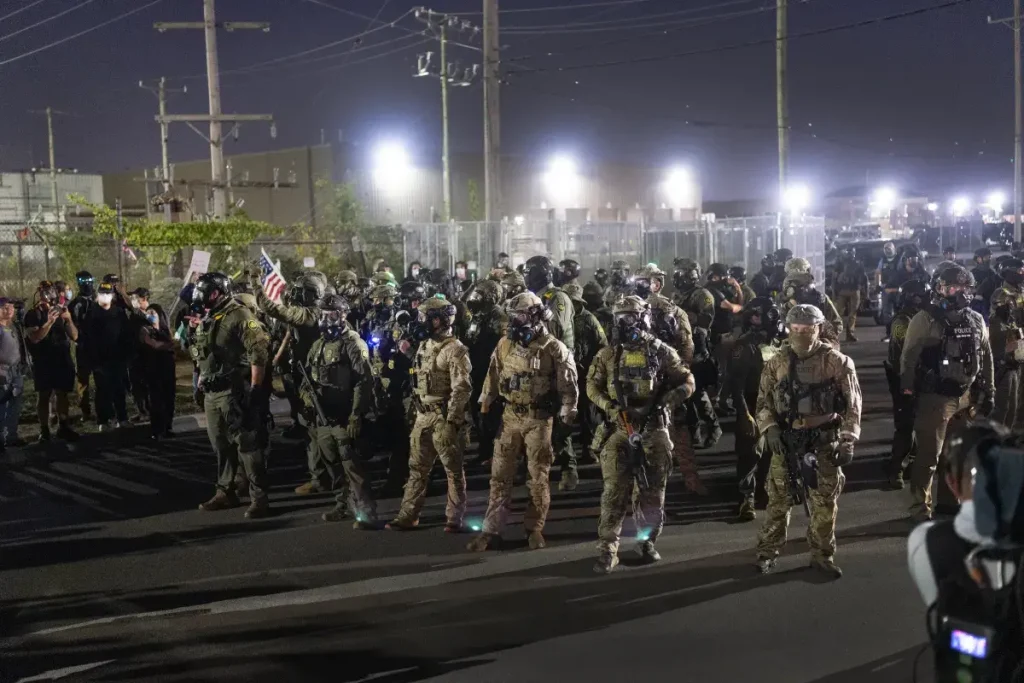Federal Immigration Operation Targets Chicago Neighborhoods in Hunt for Gang Members
In a dramatic escalation of immigration enforcement, federal agents conducted a high-profile operation in Chicago’s South Shore neighborhood, rappelling from Black Hawk helicopters onto residential rooftops in pursuit of suspected members of the Venezuelan gang Tren de Aragua. The operation, part of a broader initiative called “Operation Midway Blitz,” brought together nearly 300 federal agents from Immigration and Customs Enforcement (ICE), the FBI, and U.S. Border Patrol in a coordinated effort to apprehend individuals they described as “high-priority targets.” According to NewsNation reports, approximately 30 undocumented immigrants were taken into custody during the raid, with several allegedly having gang affiliations. This enforcement action marks a significant intensification of immigration operations in Chicago under the Trump administration, which has designated Tren de Aragua and other Latin American criminal groups as terrorist organizations through an executive order signed in January.
The operation’s scope and military-style tactics have raised both eyebrows and concerns across Chicago. U.S. Border Patrol commander-at-large Gregory Bovino, who is overseeing the ongoing enforcement efforts, told media outlets that the operation proceeded “very smoothly” after days of preparation and training. He warned that residents of Chicago’s South Side should expect an increased federal presence in their communities as operations continue. A Department of Homeland Security spokesperson framed the initiative in stark terms, stating that “Midway Blitz was launched to remove the worst of the worst criminal illegal aliens—including murderers, rapists, gang members, pedophiles, and terrorists—from Chicago communities.” The spokesperson further emphasized the administration’s hardline approach: “Under President Trump and Secretary Noem, nowhere is a safe haven for criminal illegal aliens. If you come to our country illegally and break our laws, we will hunt you down, arrest you, deport you, and you will never return.”
The expanded enforcement efforts in Chicago come in the wake of local tragedy. Operation Midway Blitz gained momentum following the death of Katie Abraham, a 20-year-old Illinois College student killed in a hit-and-run incident. While the operation ostensibly targets individuals without legal status who have criminal records or pending charges, the scale and tactics of the recent raids suggest a broader enforcement strategy. Commander Bovino did not mince words about the operation’s intent, telling NewsNation: “We’re going to be taking it to those violent gang members and illegal aliens.” The administration has specifically highlighted Tren de Aragua, a Venezuelan crime syndicate that U.S. authorities have accused of human trafficking, violence, and various cross-border crimes, as a primary target of these enforcement actions.
The federal operations have generated significant political tension in Illinois, a state with Democratic leadership that has generally supported immigrant-friendly policies. Governor JB Pritzker expressed his concerns at a Monday news conference, stating, “What I have been warning of is now being realized,” and asserting that “None of what Trump is doing is making Illinois safer.” The governor’s comments reflect a growing divide between federal immigration enforcement priorities and the positions of state and local officials in Chicago and throughout Illinois. Immigration advocacy groups have organized protests against the operations, particularly criticizing the enforcement tactics being deployed in residential communities where families and children may be present and affected by the raids.
The administration’s focus on Chicago appears to stem from multiple factors, including President Trump’s previous threats to deploy the National Guard to address crime in the city. Chicago has long been a rhetorical target for Trump, who has frequently criticized the city’s crime rates and local governance. The current operations represent a practical implementation of his campaign promises to intensify immigration enforcement, particularly against those he has characterized as dangerous criminals. The designation of groups like Tren de Aragua as terrorist organizations provides legal justification for more aggressive tactics and resource allocation. With additional Border Patrol and ICE agents expected to arrive in Chicago, the federal presence in the city is likely to grow in the coming weeks.
As these operations continue to unfold, they highlight fundamental questions about immigration enforcement, public safety, and community impact. While federal officials emphasize targeting individuals with criminal backgrounds, the scale and methods of these operations inevitably affect broader immigrant communities. Residents of targeted neighborhoods must now contend with the presence of federal agents, helicopters, and tactical teams in their daily lives. Chicago finds itself at the center of the national immigration debate, where competing visions of enforcement and public safety clash. For federal authorities, these operations represent necessary steps to remove dangerous individuals from communities. For critics, including state officials and advocacy groups, they represent an overreach that risks traumatizing communities and undermining trust in government institutions. As additional operations are planned, Chicago residents can expect continued tension between these competing perspectives on immigration enforcement.














